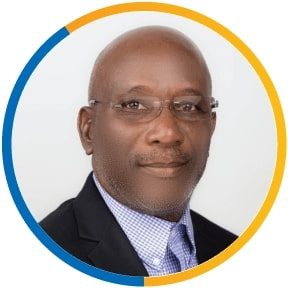Term limit proposed for opposition leader

TERM limits should be set for the opposition leader as well as the President and the Prime Minister.
Former Contractors Association president Mikey Joseph made this suggestion when he spoke at a public consultation held by the National Advisory Committee on Constitutional Reform (NAACCR) at San Fernando City Hall auditorium on April 15.
He said term limits need to be fixed in the Constitution for the office-holders of all three posts because there is a risk that all could become ineffective in their respective roles after a time.
Joseph added that while most of the focus has been on the President and the Prime Minister in this regard, the opposition leader's tenure should be looked at as well.
Under Section 83, the opposition leader is the MP selected by the President who commands the support of the majority of MPs in the House of Representatives who are opposed to the government.
There is no provision in the Constitution for the length of time that any MP can serve as opposition leader.
Section 83 identifies resignation from office and the dissolution of Parliament for a general election as two of the ways an opposition leader demits office.
Joseph said the adversarial nature of the opposition towards the government needs to change under certain circumstances and the Constitution should cater for this.
He used crime as an example where adversarial politics between government and opposition is not helpful to the public.
"It is not PNM fault. It is not UNC fault. We elect people to serve us."
Joseph said the opposition's role in the Parliament and the country's governance needs to be refined.
He added that on certain issues such as crime, the government should be able to identify the problem and the opposition should be able to help government to come up with solutions at the parliamentary level.
Joseph was applauded by some members of the audience when he suggested the Constitution be reformed so that MPs and senators use their own money to buy things like luxury cars for themselves. He said he would welcome a constitutional amendment that would see MPs and senators paying at least 33 per cent of the cost towards the acquisition of such items.
At present they are exempt from paying taxes on high-end cars.
Joseph questioned whether people were fully accessing the rights they were granted under Section 4 of the Constitution.
Section 4(a) grants the right of all individuals to life, liberty, security of the person and enjoyment of property and the right not to be deprived thereof except by due process of law.
He cited banking as an example where the right to the enjoyment of property is not observed. Joseph said it is wrong for commercial banks not to allow customers who have accounts with them full access to whatever sums of foreign exchange they wanted, butto determine how much money they give to customers.
The audience applauded when he suggested laws on commercial banks should be amended to allow people full access to all the money they have invested in any bank, at any time, once that money "is not under legal restriction."
Other people who addressed the committee said neither the PNM nor the UNC in their respective terms in government ever seemed serious about constitutional reform. They wondered what would be different this time, with a general election constitutionally due next year.
Committee moderator Wendell Constantine told the audience at the start of the meeting that no new constitution was being drafted while the committee is meeting with people to seek their views on reform.
He also said no new constitution will be written when the national constitution reform conference takes place in June.
April 15 was the deadline for members of the public to submit their recommendations for constitutional reform to the committee.
The Prime Minister announced a national consultation on constitutional reform at a news conference on January 18.
He said the committee members would get the support and resources to hold open consultations and collate and draft a working document for a constitutional conference in June, when proposed amendments will be discussed.
National Advisory Committee:
Chair: Former speaker Barendra Sinanan, SC.
Members: Former speaker Nizam Mohammed
Former Central Bank deputy governor Dr Terrence Farrell
Former Tobago House of Assembly chief administrator Raye Sandy
Former independent senator Helen Drayton
Former clerk of the House Jacqui Sampson-Meiguel
Public Service Commission chairman and permanent secretary in the Agriculture Ministry Winston Rudder
Accountant Hema Narinesingh.

Comments
"Term limit proposed for opposition leader"